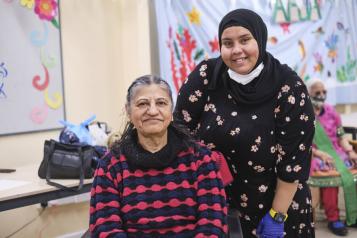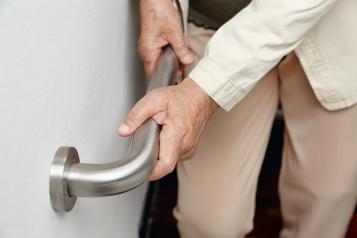CQC rates East Sussex County Council’s adult social care provision as good

CQC has a new duty under the Act to assess how local authorities work with their communities and partners to meet their responsibilities. This includes promoting the wellbeing and independence of working age disabled adults, older people, and their unpaid carers to reduce their need for formal support where appropriate. Where support is needed it should provide people with choice and control of how their care needs are met.
CQC looked at nine areas spread across four themes to assess how well the authority is meeting their responsibilities in order to create their good rating. CQC has given each of these nine areas a score out of four with one being the evidence shows significant shortfalls, and four showing an exceptional standard.
| Theme | Area | Score |
| How the local authority works with people | 1. assessing people’s needs | 2 |
| 2. supporting people to lead healthier lives | 3 | |
| 3. equity in experience and outcomes | 3 | |
| Providing support | 4. care provision, integration and continuity of care | 2 |
| 5. partnership and communities | 3 | |
| How the local authority ensures safety in the system | 6. safe pathways, systems and transitions | 2 |
| 7. safeguarding | 3 | |
| Leadership | 8. governance, management and sustainability | 3 |
| 9. learning, improvement and innovation | 3 |
Chris Badger, CQC’s chief inspector of adult social care and integrated care, said:
"At our assessment of East Sussex County Council, we found they were providing good access to adult social care that improved people's lives. This was underpinned by committed staff, strong leadership, and effective partnerships.
"What really stood out was how people felt listened to and treated with dignity. Staff tailored assessments to people’s individual needs, using language that helped people feel understood - particularly important for unpaid and young carers.
"The authority genuinely involved people who use services in designing and improving them, which means care was shaped by those who use it. This approach gave people the support to live independently whilst making services more relevant and accessible.
"Our assessment team also saw East Sussex’s good work to try and prevent people from needing more formal, long term support. This included using technology, occupational therapy clinics and equipment provision to help people stay well and remain safely in their homes, for example providing timey home adaptations.
“The strong partnerships across healthcare and the voluntary sector really strengthened this local care, and staff clearly understand their legal duties around safeguarding.
"There were some areas which the authority is aware need strengthened. For example, access to specialist services for autistic people, those with learning disabilities, complex mental health needs and people requiring nursing care remain limited. Leaders are already addressing these gaps through investment and stronger partnerships, though progress is ongoing.
"Overall, the staff at East Sussex should be really pleased with their good rating and the services they’re providing to people in the county, and we look forward to seeing how their future plans mature."
The assessment team also found:
- The authority acted on 258 recorded complaints, driving real improvements through policy reviews, staff training, and service changes. For example, it reviewed the direct payments process to provide information earlier and improve how teams worked together. People saw their feedback put into practice and felt listened to.
- The authority promoted direct payments with support from champions and partners, and many people found them empowering, giving them control over their own care options.
- Staff adapted when standard solutions weren’t possible - such as in rental properties - by expanding the range of equipment available. They provided temporary steps instead of structural changes and were empowered by leaders to make purchases from local suppliers to deliver better outcomes.
- Most carers reported positive experiences: 85.43% felt safe, 79.05% felt involved in discussions as much as they wanted, and 43.24% were satisfied with social services—all above the England average.
- Staff benefited from a strong culture of learning resilience training, and reflective practice sessions that promoted professional growth and wellbeing.
- Leaders used safeguarding and performance data to identify trends and improve services.
- Staff consistently demonstrated strong understanding of the Care Act, Mental Capacity Act, and safeguarding, applying legal frameworks confidently in practice.
However:
- The authority was aware that a number of nursing homes had closed in the past ten years, and the majority of new homes opening had offered only residential care. They recognised that the availability of this type of care for people living in the area was a key pressure which they had plans to address.
- Data systems were fragmented, with no single shared platform across health and social care, limiting access to detailed information, meaning care wasn’t as joined up as it could have been.
- The authority wasn’t always able to provide timely access to Care Act assessments, reviews, and Deprivation of Liberty Safeguards authorisations.
- Some working-age adults reported limited community opportunities, with gaps in day services and other forms of support outside education.
- East Sussex’ hospital discharge provision was good, but it wasn’t always timely.
The full assessment is available to read on the CQC website by clicking the button below.
CQC rates East Sussex County Council’s adult social care provision as good


